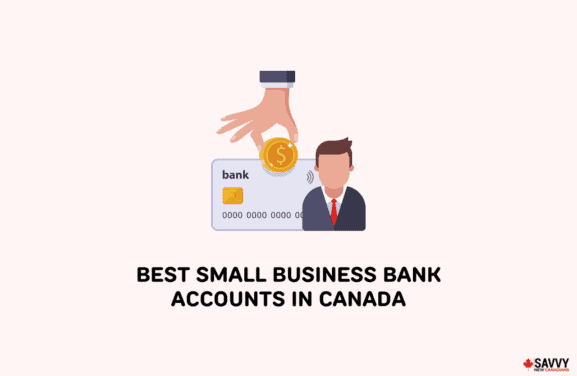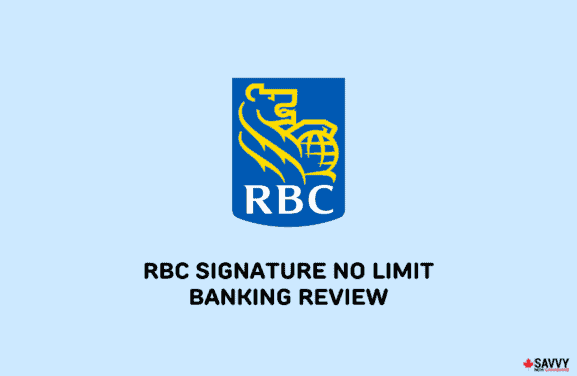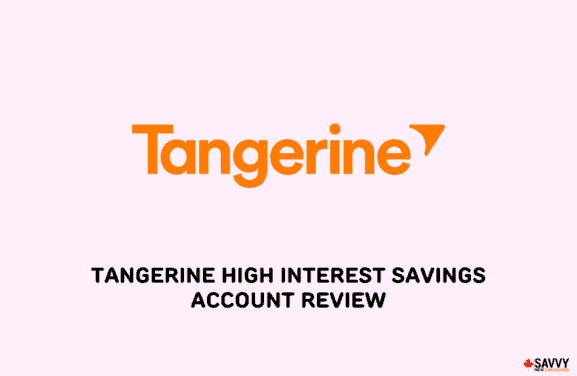It’s hard to avoid bank fees in Canada. Even free bank accounts often have hidden fees, from overdraft fees to ATM withdrawal fees, Interac e-Transfer fees, and more.
It’s important to know what these fees are before you open an account so you can take steps to avoid them as much as possible.
So, what are the most common bank fees in Canada? Why do banks charge fees? And how can you avoid paying fees? Read on to find out.
Common Bank Fees in Canada
Here are 13 of the most common bank fees you’re likely to encounter in Canada:
1. Monthly Account Fees
This is the fee that the bank charges to keep your bank account open. Some accounts are completely free and have no monthly fees, while other banks may charge a fee to keep your money in a specific account.
Banks may waive this fee if you have multiple products with the same bank or maintain a minimum balance.
2. Non-Sufficient Funds Fees
This fee, also called the NSF fee, is a fee banks charge when you attempt to make a transaction but don’t have enough money in your bank account to complete it.
One way to avoid NSF fees is to pay for overdraft protection.
3. Overdraft Fees
If you spend more than you currently have available in your bank account, your balance goes below $0. If this happens, your bank might charge an overdraft fee.
Not only that, but you may be charged interest on the amount you go overdrawn because you are essentially borrowing money from the bank in this case.
4. Minimum Balance Fees
Some bank accounts require you to keep a certain amount of money in the account to avoid paying fees. For example, you may have a minimum balance requirement of $3,000.
If you go below this amount, you might be charged a maintenance fee.
5. ATM Withdrawal Fees
Many banks allow you to use your bank card at ATMs without paying a fee, but this is typically when you use the bank’s own ATM network.
If you use an ATM in a different network or overseas, you may be charged a fee of a few dollars. However, you may have a set amount of free withdrawals before you have to start paying this fee.
Premium bank accounts may offer this perk for free, but this comes at a cost, i.e. hefty monthly account fees to keep your account open.
6. Interac e-Transfer Fees
Some banks will charge you to make Interac e-Transfers from your account to another, while others will not charge you anything.
Depending on your account type, free transfers may be included before they start charging you a fee.
7. Foreign Transaction Fees
When you buy something in another currency, like US dollars, or withdraw money from a foreign ATM, your bank will change your Canadian dollars to another currency.
You will often be charged a fee for this service. However, you might find some accounts that don’t charge FX fees.
8. Replacement Card Fees
Your banks may charge you a fee if you lose your card and need to replace it. This fee varies depending on the bank and the account you have. Sometimes there will be no fee for replacing your card.
9. Payment Processing Service Fees
These fees are related to processing cheques. However, many banks do not charge fees when you deposit a cheque into your account. It’s more likely you’ll be charged for certified cheques, bank drafts, or cheques processed in foreign currencies.
10. Search Fees
Banks often charge search fees when you need to update your banking records, for preparing letters or forms, to retrieve an image of a cheque, or to search records for other transactions.
11. Account Closing Fees
Banks may charge account closing fees when you want to close your account. These fees are usually charged when you close your account within 90 days of opening it.
The idea behind this fee is that the bank recoups some of the costs involved in opening the account that you no longer need.
12. Inactivity Fees
Depending on the account, you may be charged a fee if you don’t use it enough. These inactivity fees may only come in after a year or more.
If your bank charges this fee, it’s worth using your account occasionally to keep it active or close it if you no longer need it.
13. Transaction Fees
Some banks will charge you a fee for transactions like transferring money and making wire transfers. Many banks give you a set number of transactions you can make for free. After this, they charge a fee for each of your transactions.
Canadian Bank Fees Comparison
This table contains some common bank fees for popular bank accounts in Canada. The more perks you get, the higher the monthly fee:
| Scotiabank Basic Plus Bank Account | HSBC Performance Chequing – Unlimited | RBC Day to Day Banking | |
| Monthly fee | $11.95 (free if you maintain balance of $3,000) | $14.95 (Free for people 60 or over) | $4 (rebate may be available for meeting certain conditions) |
| Debit transactions | 25 per month included | Unlimited | 12 debits a month, then $1.25 each |
| Interac e-Transfer transactions | Free | Free | Free (up to 999 per month) |
| Paper Statement | $2.25 per month | $2 per month | $2.25 per month (with cheque images) |
| Account closing fee | $20.00 | $0 | $15 |
How to Avoid Bank Fees
With all these bank fees to look out for, it’s easy to see why so many people want to avoid them.
Fortunately, you can avoid paying several of these fees in various ways.
Open an Online Bank Account
One of the best ways to avoid common bank fees in Canada is to open an online bank account instead of opening an account with one of the traditional banks.
Several digital banks operate in Canada, like Simplii Financial and Tangerine. They have lower overheads and can often charge fewer fees as a result.
Many are free to open and free to maintain. They often have unlimited free transactions too.
However, don’t assume they are completely free. Check their small print for when fees apply.
Keep the Minimum Balance
Some banks will waive the monthly fee if you maintain a minimum balance. Monthly fees for chequing accounts can be expensive, but find out if you can get these fees waived.
The amount you need to keep in the account may be quite high, but it could be worth it if it saves you money.
Negotiate a Discount
Don’t dismiss the idea of negotiating a discount, either. It may or may not work, but if you have been a client at the bank for many years and you are in good standing, it’s always worth discussing this option.
Your bank may provide you with an alternative option without the fees.
Have Multiple Products
Finally, many banks will waive your fees if you have multiple products with them. For example, if you have a bank account, credit card and mortgage with the same bank, you may qualify for a free bank account.
Why Do Banks Charge Fees?
It can be frustrating to find out that banks charge you lots of fees for being a customer, especially if you were unaware of them.
But the reason why banks charge fees is simple: to make money.
Banks need to make a profit. Competition is fierce, and they want to provide the best service, but that means they often need to charge for it.
Banks have lots of operating expenses. And while they make money by lending to their customers via loans and mortgages, they often need to charge additional fees.
If you think a bank charges high fees, you can always choose a bank with lower fees. Sometimes, it is worth paying a higher fee for a premium service. But if not, look for a cheaper or free account that provides the same service and saves money.
FAQs
If you have been charged a fee for something and you think a mistake has been made, contact your bank. Find out what the fee is, and if it is a mistake, your bank might refund it. Some banks may even refund a fee even if it is valid, like an overdraft fee, but it’s unlikely they will do this every time.
Online banks are your best option to open an account with no monthly fees. For example, bank accounts from institutions like Tangerine, Neo Financial, and Simplii Financial generally don’t charge monthly fees.
Monthly bank fees range from free up to $20 or more. Of course, it depends on the bank account and the services it provides, so it’s always a good idea to find out before you apply to open an account.



